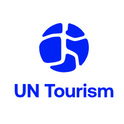170 top EHL students compete for the winning strategy in the EHL/UNWTO Silk Road Think Tank

At the Ecole Hôtelière de Lausanne (EHL)/UNWTO Silk Road Think Tank, 170 future hospitality leaders presented innovative strategies for how ten UNWTO Member States can maximize their positioning as Silk Road destinations (Lausanne, Switzerland, 4 June 2012). A panel of judges consisting of EHL management, UNWTO officials and Member States representatives selected the three winning student teams who developed the most outstanding strategies for Azerbaijan (first place), the Altai Krai region of the Russian Federation (second place) and the Islamic Republic of Iran (third place). The winning team will visit Altai Krai later this year to work with the local government to develop a comprehensive Silk Road tourism strategy for the region.
Over the past eight weeks, EHL students have been working through their strategic management course to come up with 5-10 year strategies for ten UNWTO Member States as part of their final assessment before graduating. Students were tasked with preparing innovative and feasible strategies for Albania, Armenia, Azerbaijan, China, Greece, the Republic of Korea, Iran, Russia, Turkey and Ukraine. The strategies were developed in line with the UNWTO Silk Road Action Plan 2012-2013 and the UN Millennium Development Goals.
During the Think Tank, students had the opportunity to present their strategies to UNWTO officials and Member States, who then judged and selected the three winning teams. The programme concluded with an open panel debate on how to overcome the major challenges facing tourism development across the Silk Road.
"The UNWTO Silk Road Programme plays an important role in bringing the countries of the Silk Road together again to foster growth and sustainable tourism development," said UNWTO Secretary-General, Taleb Rifai. "We are therefore delighted to be working for the first time with Europe's top hospitality management school on this highly innovative initiative to the benefit of the Silk Road."
Michel Rochat, General Director of EHL, said: "The hospitality sector has always been a link between people and culture and our students reflect this tradition. Allow me to thank country officials for recognising the significant contribution of the youth of today for the development of their tourism strategies."
The 27 reports prepared by the students cover topics such as social media and mobile technologies, transport, infrastructure, capacity building in hospitality management, intangible heritage and the restoration of cultural sites, including caravanserais. A comprehensive report on the strategies from the EHL/UNWTO Silk Road Strategy Challenge will soon be available on the UNWTO website.
Useful links:
About UN Tourism
The World Tourism Organization (UN Tourism), a United Nations specialised agency, is the leading international organisation with the decisive and central role in promoting the development of responsible, sustainable and universally accessible tourism. It serves as a global forum for tourism policy issues and a practical source of tourism know-how. Its membership includes 166 countries, 6 territories, 2 permanent observers and over 500 Affiliate Members from the private sector.
Media enquires: [email protected]
Rut Gómez Sobrino
Principal Media Officer
(+34) 91 567 81 60
UN Tourism
